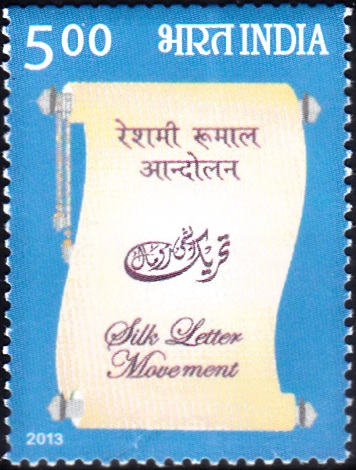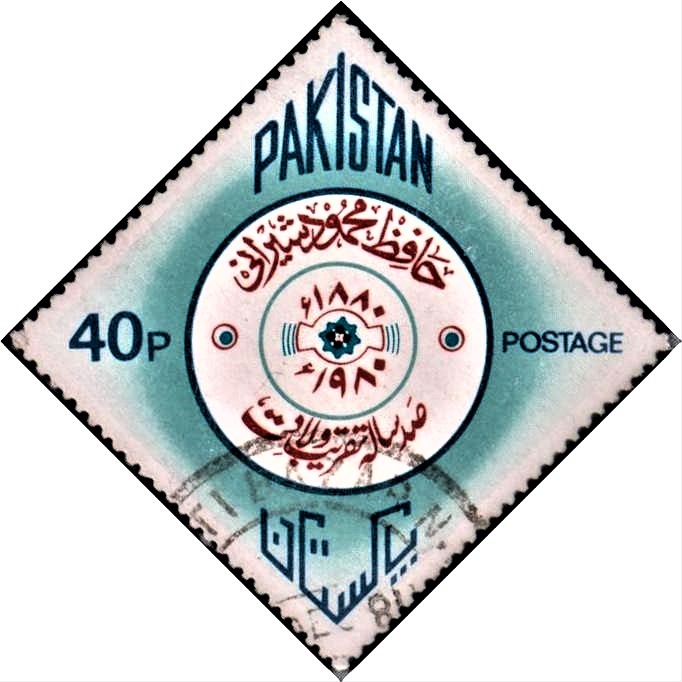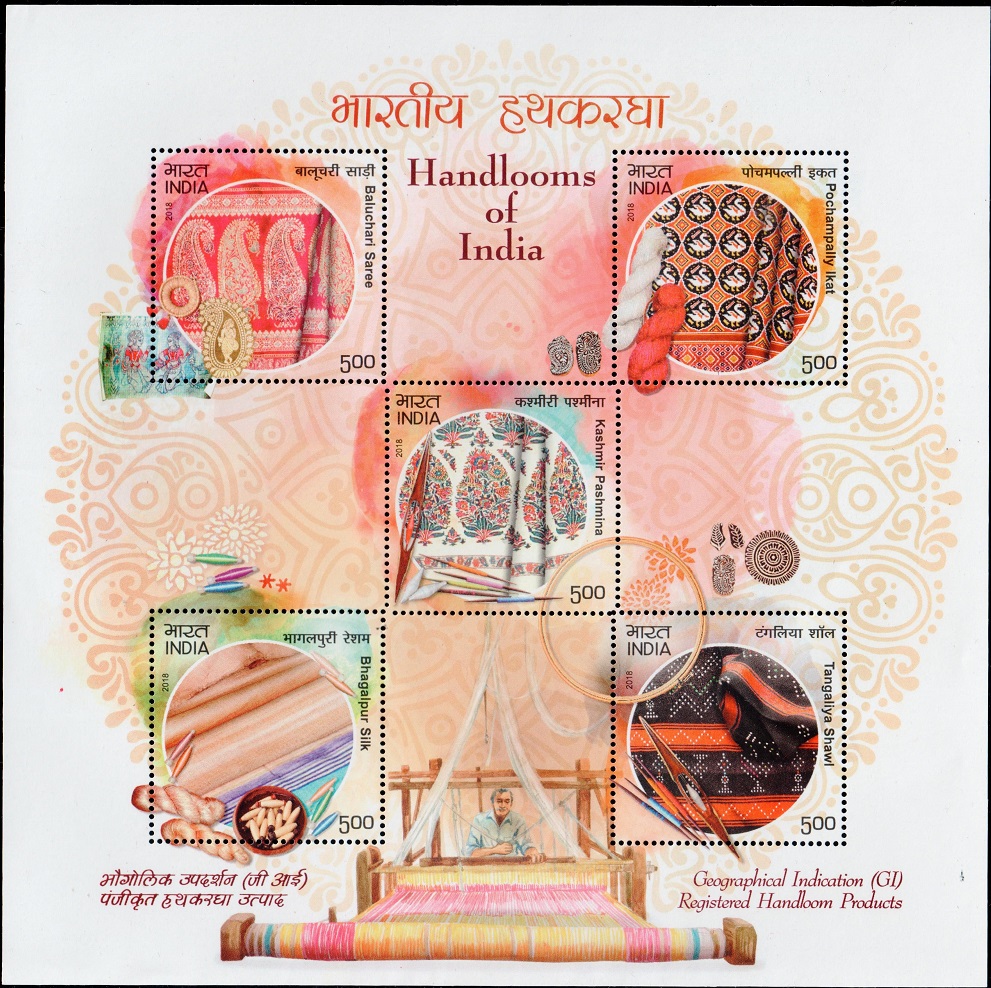
Silk Letter Movement
A commemorative postage stamp on the Silk Letter Movement (Reshmi Rumal Andolan), a movement organised by Deobandi leaders to free India from British rule by forming an alliance with Ottoman Turkey, Imperial Germany and Afghanistan :
Issued on Jan 11, 2013
Issued for : Department of Posts is happy to commemorate the contribution of ‘Silk Letter Movement’ to India’s freedom movement by issuing a Commemorative Postage Stamp.
Credits :
Stamp/FDC/Cancellation : Alka Sharma
Type : Stamp, Mint Condition
Colour : Multi colour
Denomination : 500 Paise
Stamps Printed : 0.41 Million (0.1 million for the proponent)
Printing Process : Wet Offset
Printer : India Security Press, Nashik
About :
- The freedom movement in India saw various national and regional campaigns, agitations and efforts, which played an important role in connecting the masses to the ultimate objective of ending the British rule.
- The Silk Letter Movement (Reshmi Rumal Tehrik) was one such effort from a group of revolutionaries, many of whom were connected with the Darul Uloom at Deoband. The said movement was a plan to mobilize the support of the governments of Afghanistan and Turkey to invade India and to simultaneously organize a revolt within India to overthrow the British rule. Obaidullah Sindhi and Maulana Mahmood Hasan were two important leaders of this movement. In August 1916, some letters written on silk fell into British hands. Hence the term ‘Silk Letters Movement’. The letters were sent by Obaidullah Sindhi from Kabul and were to be delivered to Maulana Mahmood Hasan who was then in Mecca. The first official British document which dealt with this movement as also other major Indian revolutionary groups and revolutionary activities and ‘conspiracies’ in different parts of the country was Sedition Committee Report (1918). Chapter IV of this Report mentions ‘The “Silk Letter” conspirators’.
- In 1915, Obaidullah Sindhi shifted his activities to Afghanistan while Maulana went to Hijaz. Obaidullah Sindhi established contact with the Ghadar Party leaders and when the Provisional Government of Azad Hind was proclaimed in Kabul, he became its Home Minister. Turkish Governor of Hijaz issued a declaration exhorting Muslims to wage ‘jihad’ against the British. The Silk Letters that fell into British hands contained details of the Provisional Government of Azad Hind and its plans and a comprehensive scheme of forming an army and getting the support of the Turkish Government. The seizure of these letters by the British and the repressive measures that the British Government took as a follow-up resulted in a serious setback to the Movement. The government of Afghanistan also became hostile to the Indian revolutionaries in Afghanistan. In the meantime, Hijaz came under British control and Maulana Mahmood Hasan alongwith Husain Ahmad Madani and other associates were arrested and sent to Malta from where they were sent back to India in 1920.
- Text : Based on the material provided by Indian Council of Historical Research.
Subscribe
Login
0 Comments
Oldest







